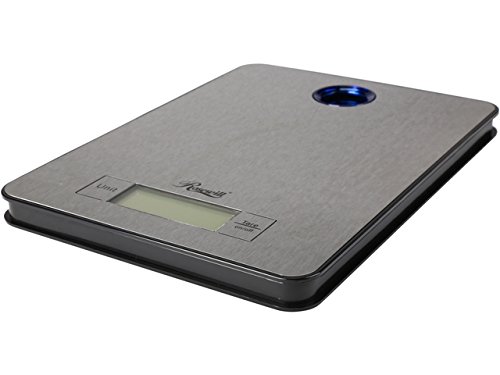随着科技的进步,电子词典日益普及,但传统印刷词典是否会被取代成为了一个热议的话题。电子词典具有便捷性、实时更新等优点,但也存在依赖电力、阅读体验可能不如纸质书籍等缺点。尽管电子词典在特定场合有其优势,但传统印刷词典仍具有不可替代的地位。电子词典与传统印刷词典各有优劣,未来两者将共存发展,电子词典不能完全取代传统印刷词典。
In today's rapidly advancing technological world, the use of electronic devices has become an integral part of our lives. This shift has also impacted the way we access information, including the dictionaries we use. While traditional print dictionaries have long been a reliable source for language learners, the rise of electronic dictionaries has caused many to question whether they will eventually replace their paper counterparts. To explore this issue, we need to consider several factors such as the advantages and disadvantages of both types of dictionaries.
First, let's take a look at the advantages of electronic dictionaries.
1、Convenience and Accessibility: Electronic dictionaries are highly convenient as they can be easily carried around in smartphones, tablets, or laptops. This portability allows users to access them anytime and anywhere, making it easy to look up words while on the go or away from home.
2、Real-time Updates: Electronic dictionaries can be easily updated with the latest additions to the language, ensuring that users always have the latest information. This is not possible with print dictionaries, which require regular reprints to incorporate new information.
3、Additional Features: Electronic dictionaries often come with additional features such as voice pronunciations, grammar explanations, and even translation capabilities. These features enhance the learning experience and provide users with a more comprehensive understanding of words and phrases.
4、Search Functionality: Electronic dictionaries allow for quick and efficient search capabilities, often with the ability to search by voice or even by scanning the word using the camera. This makes it much easier to find specific words quickly.
Despite these advantages, there are also several disadvantages to using electronic dictionaries.
1、Dependency on Electricity: Electronic dictionaries rely on batteries or an internet connection to function properly. In situations where there is no power or internet connection, they become unusable, making them less reliable than print dictionaries.
2、Distractions: Electronic devices often come with other functions and applications that can be a distraction to users, especially when trying to focus on learning. This can reduce the efficiency of learning and even hinder comprehension.
3、Eye Strain: Using electronic dictionaries for extended periods can cause eye strain due to the screens emitting blue light. This can be harmful to the eyes and cause discomfort, especially for users who spend long hours looking at screens.
Now, let's consider the advantages of print dictionaries.
1、Offline Accessibility: Print dictionaries are not dependent on electricity or batteries, making them accessible even in situations where there is no power or internet connection. This ensures that users can always access the information they need, regardless of their location or circumstances.
2、Physical Engagement: The physical act of flipping pages and browsing through a dictionary can enhance the learning experience. It provides a sense of ownership and engagement that many users prefer over electronic versions.
3、No Distractions: Print dictionaries do not come with additional functions or applications that can be a distraction to users. This allows users to focus solely on learning without any external interruptions or distractions.
In conclusion, it is evident that both electronic and print dictionaries have their own advantages and disadvantages. While electronic dictionaries offer convenience, real-time updates, and additional features, they also have limitations such as dependency on electricity and potential distractions. On the other hand, print dictionaries provide offline accessibility, physical engagement, and less distractions. Therefore, it is unlikely that electronic dictionaries will completely replace print dictionaries in the foreseeable future. Instead, both types of dictionaries will coexist as different users prefer different modes of learning and accessibility based on their needs and preferences.(字数不够,下文继续)从现实的角度来看,电子词典和纸质词典各有其独特的价值和用途,电子词典的便捷性和实时更新功能使其在现代社会中备受欢迎,而纸质词典则以其离线可用性和物理参与感继续吸引着许多用户,考虑到这一点,我们可以预见,未来的趋势将是两者共存并互补,对于某些场合和某些用户群体来说,电子词典可能是理想的选择,在旅行或没有固定电源的情况下,电子词典的便携性和实时更新功能使其成为一个很好的工具,对于其他用户来说,纸质词典可能更适合他们,一些人可能更喜欢传统的阅读体验,或者在没有电力的情况下仍然能够工作,纸质词典可以作为收藏品或纪念品,具有独特的价值,虽然电子词典在某些方面可能会超越纸质词典,但纸质词典的价值并不会因此而消失,相反,它们将继续共存并满足不同用户的需求和偏好,未来的趋势可能是电子词典和纸质词典之间的平衡发展,而不是一方取代另一方,随着技术的进步和用户需求的变化,可能会出现新的词典形式或工具,但它们都将与电子和纸质词典共存并相互促进,我们应该欣赏并接受这两种不同类型的词典共存的事实,而不是假设一种类型会完全取代另一种类型,无论是电子词典还是纸质词典,它们都是获取知识和信息的工具,重要的是我们如何最好地使用它们来满足我们的需求并促进我们的学习。




 京公网安备11000000000001号
京公网安备11000000000001号 京ICP备11000001号
京ICP备11000001号
还没有评论,来说两句吧...